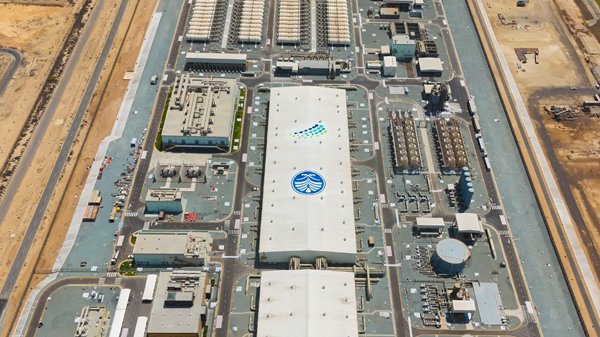Saudi Privatization Strategy
The Private Sector Participation (PSP) Program was launched in 2018, which sought to identify government assets and services that could be privatized in a number of sectors, and to develop the privatization system and mechanisms, and define the Public Private Partnership (PPP) frameworks to enhance the quality and efficiency of public services and support the contribution to economic development. Pursuant to Council of Ministers Resolution No.(436) Dated 3/8/1442 AH which has approved and issued the Private Sector Participation Law, through which the government seeks to:
1.Supporting achieving the strategic objectives of Government entities, rationalizing public expenditure, increasing Government revenues, raising the efficiency of the national economy, and increasing its competitiveness to face regional and international challenges and competition.
2.Enhancing the coverage and the quality of services, and the availability of services at the appropriate time and cost, raising the efficiency of Assets related to PSP projects and improving their level of management, and supporting readiness or restructuring of sectors, bodies, Assets, and Public Services targeted for PSP.
3.Encouraging local and foreign private sector to invest and actively participate in the national economy through projects that achieve the developmental objectives of the Government, and are economically feasible for public and private sectors, and increase the private sector’s share of the Gross Domestic Product (GDP) resulting in economic growth.
4.Increasing the participation of citizens in the ownership of Government Assets, increasing employment opportunities, and the optimal utilization of the national workforce.
Private Sector Participation (PSP) are either PPP or Divestment or both.
In order to consider the project as Public Private Partnership (PPP), The law stipulates a definition of partnership between the two sectors and The minimum elements that must be present for the project to be considered as a partnership project between the public and private sectors, as stated therein.
Public Private Partnership (PPP) defined as: A contractual arrangement related to Infrastructure or Public Service which results in a relationship between the Government and the Private Party containing the following elements:
1.The duration of the contractual arrangement shall be for a period of (5) years or more.
2.The Private Party, pursuant to the contractual arrangement, undertakes works including two or more of the following: design, construction, management, operation, maintenance, or finance of the Assets, whether these Assets are government-owned, or owned by the Private Party, or both.
3-There is a qualitative and quantitative allocation of risks between the Government and the Private Party.
4-The payments owed by or to the Private Party under this contractual arrangement are primarily based on the performance of its obligations.
5-The law also included in its ninth article that if the elements were not met therefor, Council of Economic and Development Affairs “CEDA” may, based on recommendation from National center for PPP and Privatization “NCP” Board of Directors, assess any Infrastructure or Public Services project, and classify it as a PPP or Divestment project subject to the provisions of the Law, or classify it as a project that is not subject to the provisions of the Law, irrespective of whether the definition of PPP or the definition of Divestment contained in the Law applied or not.
The provisions of the Law shall apply to all Contracts entered into by ministries, other Governmental bodies, and companies that the Government sets up or owns, directly or indirectly, with a share that exceeds (50%) of its capital and the purpose of which is the execution of a PSP project.
In order to stimulate the foreign private sector to invest and actively participate in the national economy, the law ensures (after an approval from the NCP’s board of directors), the Private Party, where it is a foreign investor, may lease real estate within the boundaries of the cities of Makkah and Medina for a period equal to the duration of the Contract for the purpose of executing the PSP project.
تعريف التخصيص والذي يكون إما نقل ملكية الأصول أو الشراكة بين القطاعين العام والخاص أو كلاهما.
وفي سبيل مدى اعتبار المشروع شراكة بين القطاعين والعام والخاص، نص النظام على تعريف الشراكة بين القطاعين، والحد الأدنى للعناصر الواجب توافرها لاعتبار المشروع مشروع شراكة بين القطاعين العام والخاص، والذي ورد به :
تُعرف الشراكة بين القطاعين العام والخاص وفقاً للنظام بأنها ترتيب تعاقدي مرتبط بالبنية التحتيّة أو الخدمة العامة، ينتج عنه علاقة بين الحكومة والطرف الخاص، وتتوافر فيه العناصر الآتية:
1. أن تكون مدته خمس سنوات فأكثر.
2. أن يؤدي الطرف الخاص بموجبه أعمالًا تشمل اثنين أو أكثر مما يأتي: تصميم الأصول، أو تشييدها، أو إدارتها أو تشغيلها أو صيانتها أو تمويلها، سواءً أكانت الأصول مملوكة للحكومة أم للطرف الخاص أم لكليهما.
3. وجود توزيع نوعي وكمي للمخاطر بين الحكومة والطرف الخاص.
4. يكون المقابل المالي الذي يستحقه الطرف الخاص أو يلتزم به بموجب هذا الترتيب التعاقدي؛ مبنيًّا بشكل أساس على مستوى أدائه في تنفيذ الالتزامات المسندة إليه.
كما تضمن النظام في مادته التاسعة في حالة عدم استيفاء العناصر لاعتباره مشروع شراكة بين القطاعين العام والخاص أو مشروع نقل ملكية أصول، على الجواز لمجلس الشؤون الاقتصادية والتنمية بناءً على توصية من مجلس إدارة المركز الوطني للتخصيص النظر في أي مشروع مرتبط بالبنية التحتية، أو الخدمات العامة؛ ليقرر اعتباره أو (عدم اعتباره) مشروعاً من مشاريع الشراكة بين القطاعين العام والخاص، أو مشاريع نقل ملكية الأصول، الخاضعة لأحكام النظام، سواء انطبق عليه تعريف الشراكة بين القطاعين العام والخاص أو تعريف نقل ملكية الأصول؛ أو لم ينطبق.
وتسري أحكام النظام حسب ما اورده النظام في مادته الرابعة على جميع العقود التي تجريها الوزارات والأجهزة الحكومية الأخرى، والشركات التي تؤسسها الحكومة، أو تتملك فيها وتصل نسبة ملكيتها فيها -بشكل مباشر أو غير مباشر- أكثر من ( %50) من رأس مالها، وتكون الغاية من تأسيسها أو التملك فيها تنفيذ مشروع تخصيص.
وفي سبيل تحفيز القطاع الخاص الأجنبي على الاستثمار والمشاركة الفاعلة في الاقتصاد الوطني تضمن النظام على جواز الطرف الخاص إذا كان مستثمًرا أجنبياً استئجار عقار داخل حدود مدينتي مكة المكرمة والمدينة المنورة لمدة تعادل مدة العقد، لغرض تنفيذ مشروع التخصيص، بعد موافقة مجلس الإدارة .
إطار حوكمة لمشاريع الشراكة بين القطاعين العام والخاص
نصت القواعد المنظمة لنظام التخصيص واللائحة التنفيذية لنظام التخصيص، على دور الجهات المعنية بمشاريع الشراكة بين القطاعين العام والخاص وصلاحياتها، حيث تتعدد جهات الإختصاص بحسب نوع الموافقة والالتزامات المالية للمشروع، وتتعدد الجهة التنفيذية بحسب نوع المهام الموكلة له، ومنها:
الجهة المختصة بالموافقة على مشاريع الشراكة بين القطاعين العام والخاص:
أ. مجلس الوزراء: الجهة المختصة بشأن منح الموافقات على وثيقة مشروع التخصيص، والطرح، والترسية، وتوقيع العقود ذات الصلة، وذلك بشأن مشاريع الشراكة بين القطاعين العام والخاص التي تتضمن نقل ملكية أصول مملوكة من جهاز معني إلى الطرف الخاص، أيا كانت قيمة المشروع.
ب. مجلس إدارة المركز الوطني للتخصيص : ويعد الجهة المختصة بمنح جميع الموافقات المطلوبة بموجب النظام لمشروع الشراكة بين القطاعين العام والخاص والذي تكون قيمة الالتزامات السنوية المباشرة على الحكومة خمسمائة مليون ريال أو أكثر للعقد الواحد، بما في ذلك الموافقة على وثيقة مشروع التخصيص والطرح والترسية وتوقيع العقد.
ت. اللجنة الإشرافية: وتعد الجهة المختصة بمنح جميع الموافقات المطلوبة بموجب النظام لمشروع الشراكة بين القطاعين العام والخاص الواقع تحت إشرافها والذي تقل قيمة الالتزامات السنوية المباشرة على الحكومة خمسمائة مليون ريال أو أكثر للعقد الواحد، أو لاتترتب بموجبه أي التزامات مالية سنوية مباشرة على الحكومة بما في ذلك الموافقة على وثيقة مشروع التخصيص والطرح والترسية وتوقيع العقد.
2- الجهة التنفيذية المعنية بمشروع التخصيص.
أ. اللجنة الإشرافية: تعد الجهة التنفيذية في الأصل هي اللجنة الإشرافية المعنية بالقطاع ولها مهمات وصلاحيات الجهة التنفيذية.
ب. الجهاز المعني: استثناءً ما ورد أعلاه، نصت القواعد المنظمة للتخصيص على منح الجهاز المعني بالقطاع صفة الجهة التنفيذية في بعض المسائل التي أوردتها القواعد، من أبرزها:
إعداد وثيقة مشروع التخصيص، ووثائق طرح مشروع التخصيص، والرفع بها إلى اللجنة الإشرافية المعنية بالقطاع لأخذ الموافقات اللازمة. إدارة إجراءات طرح مشروع التخصيص ويشمل ذلك طلبات إبداء الرغبات، والتأهيل، والعروض، وتقييمها، والتفاوض مع المتنافسين، وأي مهمات أخرى مرتبطة بإجراءات الطرح، والرفع بنتائج ذلك للجنة الإشرافية المعنية بالقطاع لأخذ الموافقات اللازمة. إدارة مرحلة ترسية وتوقيع العقد مع الطرف الخاص، وإنهاء الإجراءات المرتبطة بذلك بعد الحصول على الموافقات اللازمة من اللجنة الإشرافية، والجهة المختصة. إدارة مرحلة تنفيذ عقد التخصيص ومراقبته في المرحلة اللاحقة لتوقيع العقد.
يعد الأصل والوسيلة الأساسية لطرح مشروع تخصيص بأن تكون من خلال منافسة العامة، وأي وسيلة آخرى تتطلب موافقة الجهة المختصة بحسب نوع الوسيلة، ويكون طرح المشروع عن طريق المراحل التالية:
1-مرحلة ابداء الرغبة .
2-مرحلة التأهيل المسبق.
3-مرحلة تقديم العروض.
وثائق الطرح والمنافسة:
1-وثيقة ابداء الرغبة(EOI) وهي وثيقة تصدرها الجهة التنفيذية بهدف استقبال طلبات المهتميد والراغبين بالمشروع، وتتضمن التالي:
أ. ملخصاً عن مشروع التخصيص وجدوله الزمني المتوقع.
ب. معلومات إبداء الرغبة وآلية تقديمها.
ج. موعد استقبال إبداء الرغبة.
د. بياناً بأن طلب تقديم المؤهلات سيُرسل فقط للأشخاص الذين أبدوا رغبتهم للمنافسة في مشروع التخصيص.
2-طلب تقديم المؤهلات (RFQ)، وهي وثيقة تهدف إلى فحص المؤهلات لدى المهتمين بالمشروع، وتتضمن مايلي:
تُصدر الجهة التنفيذية طلب تقديم المؤهلات بعد مضي المدة اللازمة من نشر قائمة الأشخاص الذين أبدوا الرغبة في المنافسة وفق الأحكام الآتية:
أ. الجدول الزمني لتقديم وثيقة المؤهلات والجدول الزمني المبدئي لمشروع التخصيص.
ب. التعليمات بشأن محتويات وثيقة المؤهلات ومتطلباتها ومستنداتها الداعمة، والصيغة التي يجب أن تُقدم فيها، ووسائل التواصل لتقديم وثيقة المؤهلات ومستنداتها الداعمة.
ت. الموعد النهائي لتقديم وثيقة المؤهلات، إضافة إلى بيان يفيد بأن وثيقة المؤهلات لن يتم قبولها بعد التاريخ والوقت المحددين.
ث. تحديد مركز اتصال موحّد للإجابة على تساؤلات المتقدمين وتقديم الإيضاحات.
ج. بيانًا بشأن متطلبات الحد الأدنى للمتقدمين.
ح . وصفاً لعملية الاستيضاحات قبل تقديم وثيقة المؤهلات، بما في ذلك الإجراءات الخاصة بتلقي الاستيضاحات والرد عليها والجدول الزمني لذلك.
خ. تحديد كيفية التعامل مع المعلومات والوثائق وحقوق الملكية الفكرية الخاصة بالمتقدمين. د. وصفًا لمشروع الشراكة بين القطاعين العام والخاص، وتوقعات القطاع العام، وموقع المشروع وخصائصه الأخرى ذات العلاقة، وهيكلة العملية بما فيها الالتزامات التعاقدية المستمرة – إن وجدت.
ذ. إجراءات عملية التأهيل، ومعايير التقييم ومنهجيته.
ر. بيان أسلوب الشراكة بين القطاعين العام والخاص وأي تفاصيل تجارية أو تعاقدية أخرى ذات علاقة بطلب تقديم المؤهلات.
ز. بيانًا بأن التكاليف التي يتكبدها المتقدمون في إعداد وتقديم وثيقة المؤهلات لن تتحملها الجهة التنفيذية أو الحكومة.
س. القواعد والمتطلبات المتعلقة بالتحالفات، والقيود المفروضة على أهلية المتقدمين، والإفصاح. وتجنب تعارض المصالح.
ش. بيانًا بجواز تعديل طلب تقديم المؤهلات وعملية الطرح أو تغييرها أو إنهاءها بأكملها من الجهة التنفيذية في أي وقت ولأي سبب دون أي مسؤولية على الجهة التنفيذية أو الحكومة نتيجة لذلك أو تكاليف تكبدها المتقدمون.
ص. حظراً للتواصل بين المتقدمين، ما لم يُسمح بذلك صراحة في طلب تقديم المؤهلات.
ض. حظراً للتواصل والتواطؤ، وتعارض المصالح، والرشوة بين المتقدمين والموظفين والعاملين. المعنيين في الجهاز المعني والجهة التنفيذية، وأي من ممارسات الفساد الأخرى، وبيان أنه يتعين على المتقدمين الإقرار بامتثالهم لجميع ما سبق وذكر أي عقوبات أو قيود سابقة صادرة ضد المتقدم إن وجدت.
ع. وصفًا للإجراء الخاص باستلام طلب تمديد الجدول الزمني لتقديم وثيقة المؤهلات.
3- وثيقة المؤهلات، وهي وثيقة يتم تقديمها من الراغبين بالمشروع إلى الجهة التنفيذية لغرض تقديم المؤهلات وتحقيق متطلباتها، ومن ما تتضمنه:
أ. معلومات عامة عن المتقدم والتحالف المتقدم معه.
ب. الهيكلة الإدارية والقانونية للمتقدم والوثائق التأسيسية له.
ت. دليلاً على توفر ما يأتي في المتقدم:
خبرة ذات صلة بمشروع التخصيص أو القطاع أو في مشاريع مشابهة.
القدرة على تنفيذ مشروع التخصيص.
الملاءة المالية والقدرة على تحمل التكاليف.
خبرة في مشاريع قابلة للمقارنة اشتملت على أهم عناصر مشروع التخصيص مثل التمويل والتصميم والبناء والتملك والتشغيل والصيانة.
القدرة على تلبية متطلبات الأسهم والتمويل، إن ُوجدت.
خبرة سابقة في تطوير المشاريع والنجاح والابتكار فيها، ومعالجة آثارها الاجتماعية والبيئية.
خبرة في تطوير القوى العاملة وتعزيزها، ونقل التقنية والقدرات، وتعزيز المحتوى المحلي.
فهم خدمات القطاع العام واحتياجات مشروع التخصيص والقدرة على التفاعل والعمل مع جهات القطاع العام.
القدرة على إدارة المخاطر في جميع مراحل مشروع التخصيص والحفاظ على جودة الخدمات والبنية التحتية.
4- وثيقة طلب العروض (RFP)، ومن ما تتضمنه وثيقة طلب تقديم العروض ما يأتي:
أ. وصفًا لوثيقة الشروط والمواصفات ودورها في العملية التنافسية، مع تفصيل لكيفية تقييم العروض.
ب. الجدول الزمني لتنفيذ مشروع التخصيص.
ت. نبذة عامة عن مشروع التخصيص، وأهدافه، وافتراضات وتوقعات التمويل ، ونهج التعاقد، وعملية العناية الواجبة، والبيانات أو المواد المرجعية المتاحة بما في ذلك إمكانية الوصول إلى غرفة بيانات أو مصادر أخرى للمعلومات ذات صلة بمشروع التخصيص.
ث. وصفاً للأصول محل المشروع في مشروع نقل ملكية الأصول وأسلوب الطرح المقترح (مثل: الأصول، الأسهم، وغيرها) وأي إشكاليات متعلقة بملكية الأصول واستخدامها، والمسائل التقنية والدراسات والرسومات الفنية المتعلقة بالأصل، وأي اشتراطات تابعة للعقد (مثل الموظفين، حق استخدام الأرض، التزامات الاستثمار، معالجة الديون، والمشتقات المالية، وغيرها)، والتوائم مع أي استراتيجية لنقل ملكية الأصول (مثل: تحديد كيفية تحقيق المشروع المقترح لمستهدفات القطاع، الروابط مع هيكلة الإطار النظامي والتنظيمي للقطاع في السوق، والجدول الزمني لتنفيذ أي تغييرات تشريعية).
ج. بياناً بإمكانية تقديم مقترحات من المتنافسين على مشروع التخصيص وكيفية التعامل مع هذه المقترحات وسريتها، إذا نُصّ عليها في خطة الطرح الموافق عليها.
ح. وصفًا لعملية الاستيضاح في مرحلة ما قبل تقديم العرض، بما في ذلك الإجراءات الخاصة بتلقي الاستيضاحات والرد عليها، وعدد جولات الاستيضاحات، والجدول الزمني لذلك.
خ. وصفًا للإجراء الخاص باستلام طلب تمديد الجدول الزمني لتقديم العروض.
د. إشارة إلى الأدوات النظامية المتعلقة بمشروع التخصيص بما في ذلك أي مراسيم، وقرارات، وأنظمة، وقواعد، ولوائح تعتمد عليها عملية تقديم العروض.
ذ. تعليمات بشأن المعلومات والمواد التي يجب تقديمها في العرض، وبشأن تقديم العروض الفنية والمالية بشكل منفصل، وأي متطلبات متعلقة بالصيغة التي يجب أن يتم تقديم العرض وفقها، ووسائل التواصل لتقديم العروض وأي مواد داعمة. وما إذا كان سيُطلب تقديم عرض واحد في مشروع نقل ملكية الأصول التي تعتمد عملية الاختيار فيه على العرض المالي فقط.
ر. الموعد النهائي لتقديم العروض إضافة إلى بيان يفيد بأنه لن يتم قبول العروض بعد التاريخ والوقت المحددين.
ز. تحديد مركز اتصال موحّد للجهة التنفيذية.
س. طلب تحديد مركز اتصال موحّد للمتنافس.
ش. بيانًا بأن التكاليف التي يتكبدها المتنافسون في إعداد وتقديم العروض لن تتحملها الجهة التنفيذية أو الحكومة.
ص. بيانًا بجواز تعديل أو تغيير أو إنهاء طلب تقديم العروض وعملية الطرح بأكملها من قبل الجهة التنفيذية في أي وقت ولأي سبب دون وجود مسؤولية عليها أو على الحكومة نتيجة لذلك عن أي تكاليف يتكبدها المتنافسون.
ض. حظراً للتواصل بين مقدمي العروض، ما لم يُسمح بذلك صراحة في طلب تقديم العروض.
ط. حظراً للتواصل والتواطؤ، وتعارض المصالح، والرشوة، بين مقدمي العروض والموظفين والعاملين المعنيين في الجهاز المعني والجهة التنفيذية وأي من ممارسات الفساد الأخرى، وبيان أنه يتعين على مقدمي العروض الإقرار بامتثالهم لجميع ما سبق وذكر أي عقوبات أو قيود سابقة صادرة ضد المتقدم.
ظ. تحديد كيفية التعامل مع المعلومات والوثائق وحقوق الملكية الفكرية الخاصة بمقدمي العروض.
ع. القواعد والمتطلبات الخاصة بالتحالفات، والقيود المفروضة على أهلية مقدمي العروض، والإفصاح عن تعارض المصالح.
غ. وصفًا لمعايير تقييم العروض ومنهجيته، وما إذا كان سيتم استخدام معايير النجاح والإخفاق، مع تفصيل للمتطلبات المالية والفنية وعملية التقييم بأكملها.
ف. تحديد مدة سريان العروض المقدمة، واشتراط أن تكون العروض المقدمة سارية لمدة مائة وثمانين (180) يوماً من تاريخ استلامها على الأقل، ما لم توافق الجهة التنفيذية على مدة مختلفة.
ق. بيانًا بشأن إمكانية تطبيق جولة العرض النهائي الأفضل.
ك. حظر تقديم مقدم العرض أو أي عضو في فريقه أكثر من عرض.
ل. حظر تقديم المعلومات المضللة والسلوك المخادع، واستبعاد من يفعل ذلك.
م. تحديد أي متطلب لتقديم الضمان الابتدائي أو النهائي المتعلق بالعرض أو أي شكل آخر من أشكال الضمان، وتحديد أي أتعاب لاحقة قد تكون مستحقة الدفع عند نجاح عملية الطرح وتحقيق الإغلاق التجاري والمالي، وقيمتها، والمستفيدين منها.
ن. إرفاق مسوّدة عقد الشراكة بين القطاعين العام والخاص، بما يتماشى مع متطلبات الوثيقة، وأي مستندات أخرى ذات علاقة بطلب تقديم العروض.
أساليب الشراكة بين القطاعين:
تعد أساليب الشراكة بين القطاعين عديدة ولها الكثير من الأساليب وقد تطرقت اللائحة التنفيذية لنظام التخصيص الموافق عليها بقرار مجلس إدارة المركز الوطني للتخصيص (ق/9- 2021) وتاريخ 23/4//144 إلى عدد من تلك الأساليب ومنها:
1. تشييد – تشغيل – نقل ((BOT
2. تشييد – تملك – تشغيل. (BOO)
3. تشييد – تملك – تشغيل – نقل. (BOOT)
4. تشييد – نقل – تشغيل. (BTO)
5. تصميم – تشييد – صيانة (DBM)
6. تصميم – تشييد – تشغيل. (DBO)
7. تصميم – تشييد – تمويل – صيانة. (DBFM)
8. تصميم – تشييد – تمويل – تشغيل – صيانة. (DBFOM)
9. تصميم – تشييد – تمويل – تشغيل. (DBFO)
10. تصميم – تشييد – إدارة – تمويل. (DCMF)
11. إعادة تأهيل – تملك – تشغيل.(ROO)








